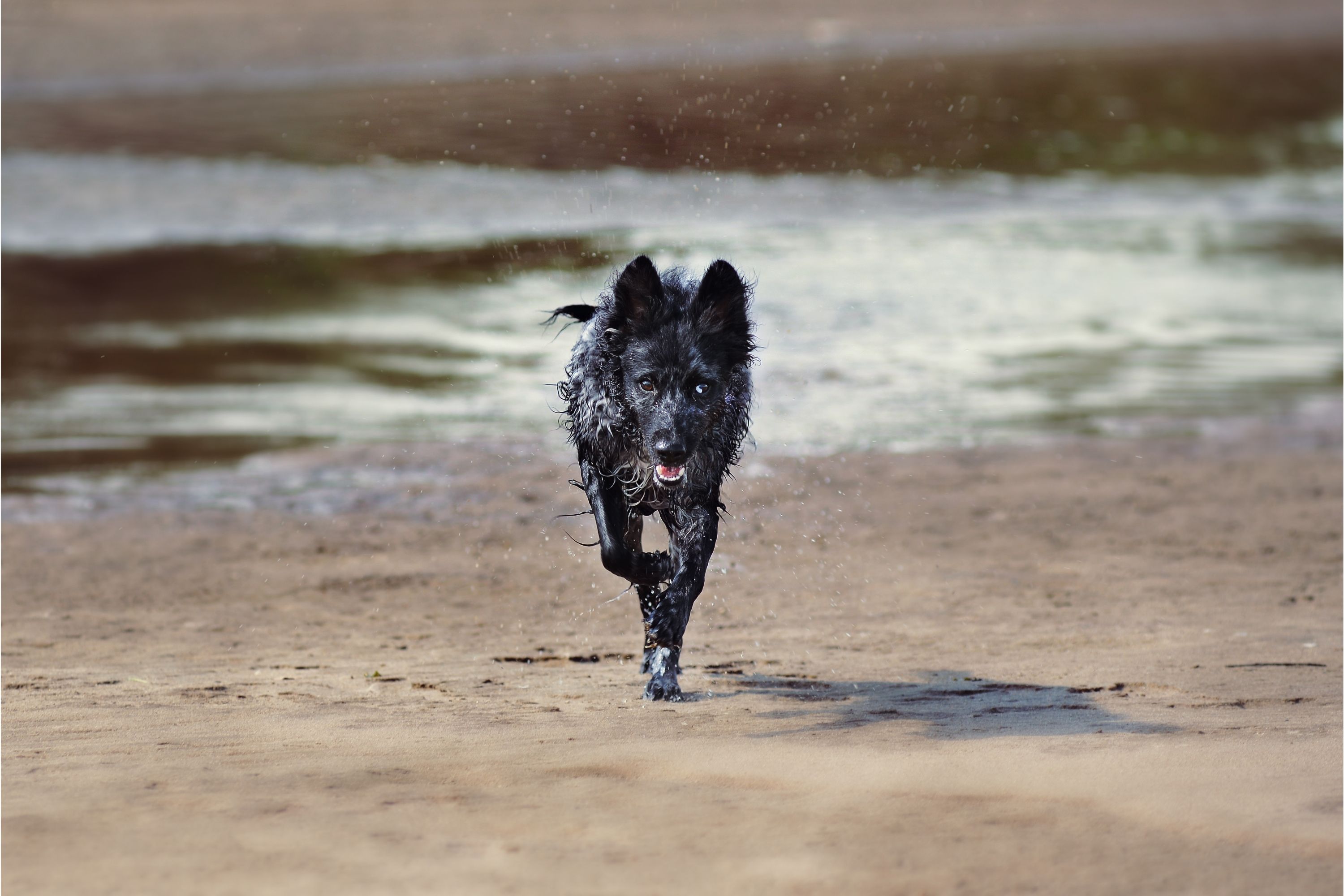Mudi
(Mudi)

Description
The Mudi dog, also known as the Hungarian Mudi, is a medium-sized herding dog breed that originated in Hungary. It is a highly intelligent, athletic, and versatile breed that excels in a variety of activities, including herding, agility, obedience, and even as a family companion. In this article, we will provide a detailed overview of the Mudi dog, including its history, characteristics, temperament, health concerns, and training needs. History: The Mudi dog is believed to have descended from ancient herding dogs that were brought to Hungary by nomadic tribes. These dogs were interbred with other herding dogs, such as the Puli, Pumi, and German Spitz, to create a unique breed with a variety of coat colors and textures. The Mudi was primarily used as a herding dog, but it also proved to be an excellent hunting companion and guard dog. The breed was recognized by the Hungarian Kennel Club in 1966 and has since become a popular working and companion dog in its home country. However, it remains a relatively rare breed outside of Hungary. Physical Characteristics: The Mudi is a medium-sized dog that typically weighs between 18 and 29 pounds and stands 14 to 20 inches tall at the shoulder. It has a sturdy, muscular build and a distinctive wedge-shaped head with a flat skull and small, pointed ears. The breed's coat can be short or medium-length and comes in a variety of colors, including black, white, brown, gray, and fawn. Some dogs also have a brindle pattern. Temperament: The Mudi is a highly intelligent and active breed that requires plenty of physical and mental stimulation to stay happy and healthy. It is an excellent problem solver and has a strong work ethic, making it a top choice for herding and other working activities. However, the breed is also known for its loyalty and affection toward its family members and can make an excellent companion dog with proper socialization and training. Training: Training is essential for the Mudi to reach its full potential. The breed is highly trainable and excels in a variety of activities, including obedience, agility, herding, and even scent work. Positive reinforcement training methods are the most effective for this breed, as it responds well to praise and rewards. Socialization is also critical for the Mudi to ensure that it is comfortable around other people and dogs. Health Concerns: Like all dog breeds, the Mudi is prone to certain health issues, including hip dysplasia, progressive retinal atrophy, and epilepsy. It is essential to purchase a Mudi from a reputable breeder who can provide health clearances for the parents of the litter. Regular veterinary check-ups are also essential to monitor the dog's health and catch any issues early on. Conclusion: In conclusion, the Mudi is a versatile and intelligent breed that excels in a variety of activities, from herding to agility to being a loyal family companion. However, it requires plenty of physical and mental stimulation to stay happy and healthy, and proper training and socialization are essential to ensure that it reaches its full potential. With the right care, the Mudi can be an excellent addition to any active and loving home.
Taxonomic tree:







